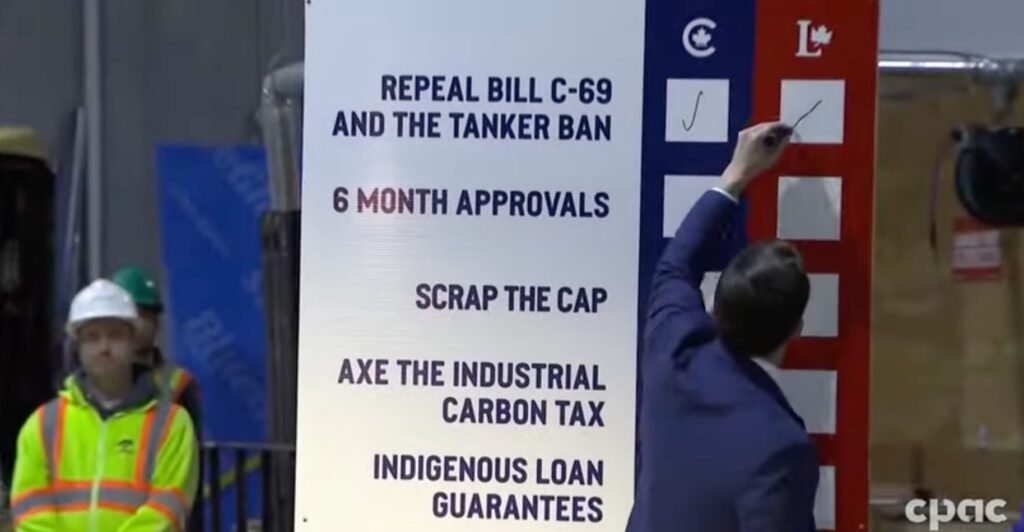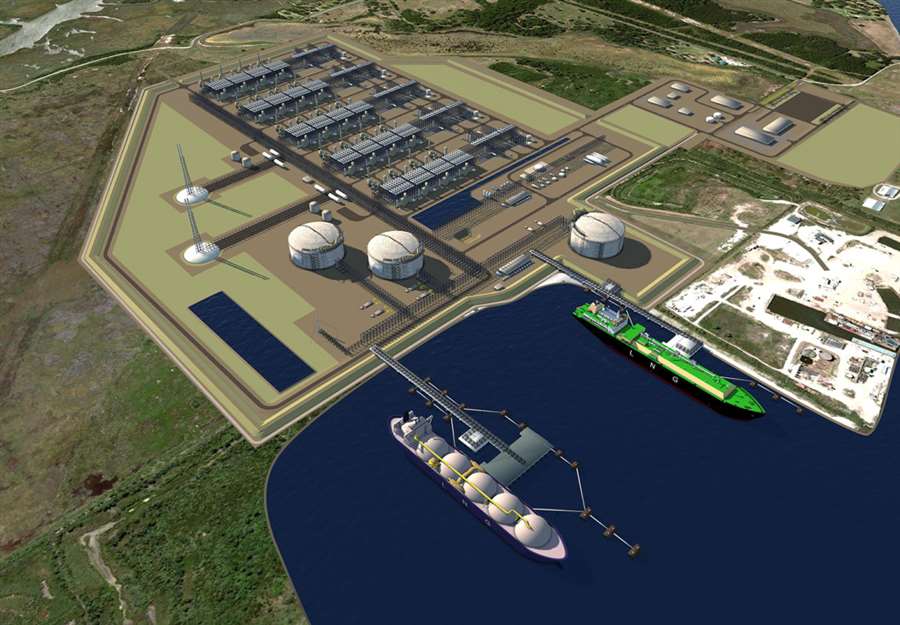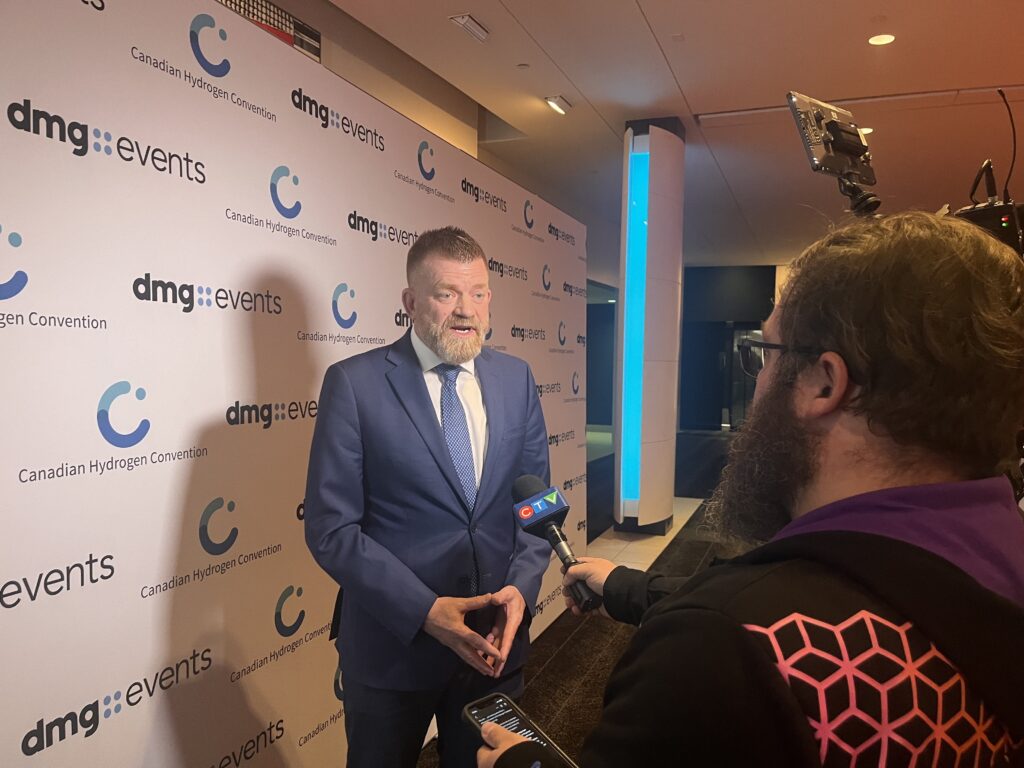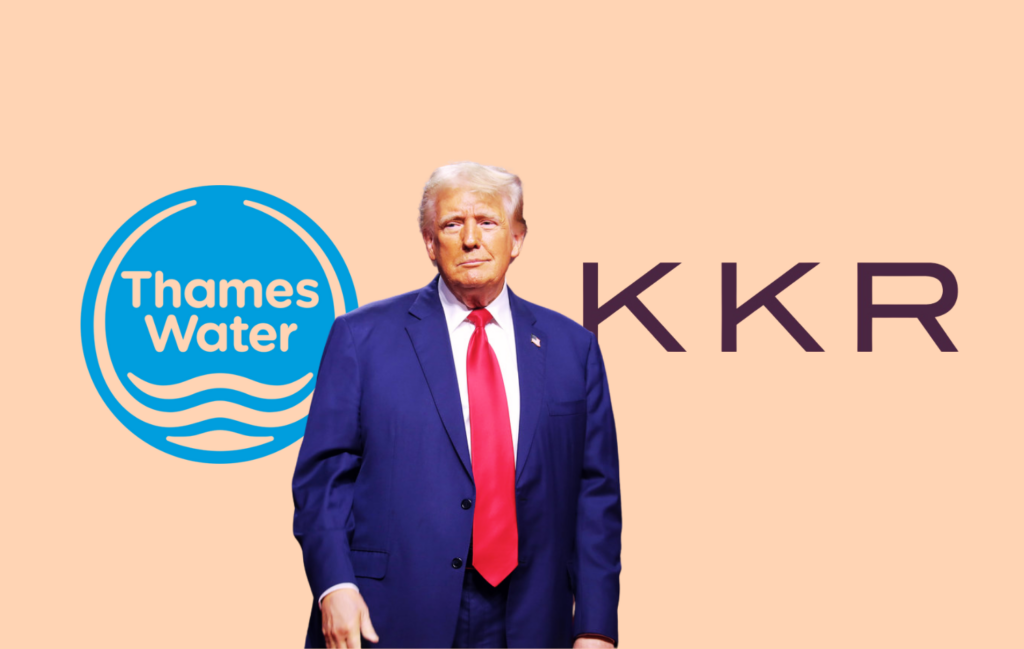If anyone was doubting that Conservative leader Pierre Poilievre would give the oil industry exactly what they want, he helpfully provided a visual aid at a recent campaign event in Newfoundland. Poilievre posed beside a large poster of industry election demands itemized in a letter from 14 energy CEOs, and used a sharpie to check boxes beside each one.
Cancel industrial carbon pricing? Check. Expedite energy approvals within six months? Check. End the federal emissions cap? Check.
End the oil tanker ban on B.C.’s north coast? Check.
Poilievre has apparently decided to take dictation from the oil patch even as we near peak oil demand and clean energy investments outstrip those to the fossil fuel sector two to one. This hard-fought election will be decided on who can best navigate Canada away from the dangerous agenda of President Donald Trump. Yet Poilievre’s energy policy seems a carbon-copy of the drill-baby-drill MAGA mantra seen south of the border. As Canadians decide who deserves their vote, the Conservative leader is instead demonstrating his lack of imagination, judgment, and courage.
Perhaps Poilievre’s most egregious concession to the oil sector is his stated commitment to lift the northern tanker ban that has been on the books since 2019. Poilievre previously voted in favour of a failed private members bill to repeal the law in 2021 when he was in opposition, and has stated he wants to finish the job as prime minister.
Local First Nations remain fiercely opposed to opening the northern B.C. coast to crude tanker traffic and associated risks from oil spills. The Exxon Valdez disaster devastated Prince William Sound in 1989 with 240,000 barrels of crude impacting over 2,000 kilometres of pristine coastline. Even a small spill can impact fragile coastal ecosystems for years. An ocean-going tugboat sank near Bella Bella B.C. in 2016 after running aground, spilling 110,000 litres of diesel fuel. More than 350 kilometres of shoreline was fouled, and unrecovered fuel still pollutes local wild food sources relied on by the Heiltsuk Nation.

Northern Gateway Battle
The proposed Northern Gateway pipeline planned to ship 525,000 barrels per day of Alberta crude to a new tanker export terminal near Kitimat, B.C., leading to a decade-long dispute with local communities. The majority of residents in Kitimat voted against the project in a plebiscite, and nearly every coastal municipality from Haida Gwaii to Prince Rupert passed resolutions opposing the project.
The Conservative government of then-Prime Minister Stephen Harper tried to ram the project through, as Poilievre apparently presumes he could soon do if elected. However, Harper learned the hard way that ignoring local priorities, especially those of First Nations, will likely lead to a drawn-out defeat in court.
It is sadly predictable that oil-promoting politicians like Poilievre and Alberta Premier Danielle Smith seem eager to use the current crisis with Trump to promote oil pipelines “north, east and west.” Given our proximity to global peak oil demand, it is also unsurprising that potential private sector investors are notably nowhere in sight.
Strong Indigenous opposition to north coast oil tankers has not gone away since the project was cancelled after a stinging court defeat in 2016. After Trump began musing about annexing Canada this year, Grand Chief Stewart Phillip of the Union of BC Indian Chiefs issued an initial statement in seeming support of reviving Northern Gateway that was quickly walked back. Stewart remains unequivocal that “there is no room for fossil fuel expansion… I do not support resuscitating dead projects such as the failed Northern Gateway pipeline, which would have been an absolute disaster for our lands and waters.”
Chief Marilyn Slett of the Heiltsuk Tribal Council added, “the environmental risks to our territories were and are too great. Nothing has changed, and we are not going to back down.” Industrial users are also warned they would fiercely fight any plans to resurrect Northern Gateway. “We would remain completely opposed to any offshore oil transportation,” said Joy Thorkelson of the United Fishermen and Allied Workers’ Union.
Emergency Warning
So how does Poilievre think he can somehow finalize regulatory approval within six months against this wall of local opposition? An ominous answer is alluded to in the demand letter signed by 14 CEO’s from the fossil fuel industry:
“By declaring a Canadian energy crisis and key projects in the “national interest,” the federal government will be able to use all its available emergency powers to ensure that the dramatic regulatory restructuring required to expand the oil and natural gas sector is rapidly achieved.”
Is the oil industry actually suggesting that Ottawa invoke the Emergencies Act to force through fossil fuel infrastructure over the constitutionally-protected rights of First Nations? It would certainly seem so. Which begs the question: what “Canadian energy crisis” is the oil industry referring to? The one industrial sector that has received easier tariff treatment than any other is the ever-unsatisfied oil patch.
This letter also serves up a side order of insult to accompany the implied injury to Indigenous rights. Since exactly zero private sector investors seem prepared to pony up their own money to pay for a new oil pipeline to tidewater, the energy CEOs are apparently also inferring the Canadian taxpayer should be on the hook for additional billions to pay for another pipeline that optimistically would be completed just as global oil demand begins to wane.
This attitude of entitlement is certainly on-brand for the fossil fuel sector. What is also on-brand is the cowardly obedience of Pierre Poilievre to whatever the oil industry wants. Canadians looking for a courageous defender against the MAGA agenda should take note and vote accordingly.
Subscribe to our newsletter
Stay up to date with DeSmog news and alerts







